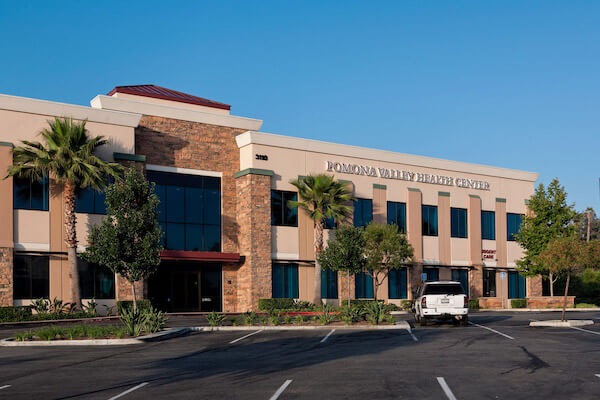At Pomona Valley Health Centers (PVHC), we provide expert prenatal testing and diagnosis services to support a healthy and informed pregnancy.
Whether you’re seeking genetic screening, prenatal paternity testing, or advanced diagnostic services, our skilled specialists are here to deliver accurate, reliable results. We help families prepare for every step of their pregnancy journey with comprehensive care and compassionate guidance.
To learn more about our comprehensive prenatal screening services, contact us directly or continue reading below.
Prenatal diagnosis involves specialized testing during pregnancy to detect genetic, chromosomal, or structural abnormalities in the baby. These tests provide critical insights that guide medical care before and after birth. Prenatal diagnosis is recommended between 15 and 22 weeks of pregnancy and is vital in promoting a healthy pregnancy and delivery experience.
Prenatal screening is recommended for all pregnancies, but it is particularly beneficial for:
Prenatal services play a critical role in ensuring the health of both mother and baby. They help:
At PVHC, we are committed to providing personalized care and guidance to help you enjoy a healthy, stress-free pregnancy.
Contact us today at 909-378-9261 to learn more about our prenatal services or schedule your first appointment.
The Premier Family Medicine physicians at PVHC recommend evidence-based, non-invasive prenatal screening tests for all pregnant women. These tests are designed to provide vital information about your baby’s health and detect potential genetic or chromosomal abnormalities.
This screening combines a blood test and an ultrasound to measure nuchal translucency, the clear space at the back of your baby’s neck. An abnormally large measurement can indicate chromosomal conditions such as Down syndrome.
This blood test measures the levels of four specific substances in the mother’s blood. The results can help:
NIPT is a blood test that analyzes fetal DNA circulating in the mother’s blood. It is highly effective in detecting chromosomal abnormalities such as:
This test identifies whether parents carry genetic mutations that could be passed to their baby, helping assess the risk of inherited conditions like cystic fibrosis or sickle cell anemia.
If abnormalities are detected during screening, you may be referred to the Pomona Valley Hospital Medical Center (PVHMC) perinatal team for additional diagnostic testing:
This procedure involves using a thin needle to remove a small amount of amniotic fluid from the sac surrounding your baby. The fluid is analyzed for chromosomal abnormalities, genetic disorders, and neural tube defects.
CVS uses a thin needle to collect a small tissue sample from the fetal part of the placenta. This tissue contains the baby’s genetic material and can be analyzed for chromosomal abnormalities and genetic disorders.
Both tests are performed carefully to ensure the safety of the mother and baby and to provide accurate diagnostic information.
At PVHC, our prenatal screening and diagnostic services are designed to give you peace of mind and empower you with the knowledge you need for a healthy pregnancy.
Most major insurance plans cover prenatal testing, especially for high-risk pregnancies. Even for low-risk pregnancies, many tests are included in standard coverage. The cost of testing can vary, so we encourage patients to consult their insurance provider or our staff to fully understand their benefits.
Pregnancy is classified as high-risk when factors increase the chance of complications for the mother or baby. Common risk factors include:
At PVHC, our perinatal specialists collaborate with families to provide the highest level of care for high-risk pregnancies.
Choosing PVHC means receiving expert care from a trusted team of specialists. Here’s why families trust us:
Personalized prenatal care is essential for the health of both you and your baby. Here are some common questions and answers about prenatal genetic testing and screening.
Prenatal care involves regular check-ups with your healthcare provider to monitor your health and the development of your baby. It helps identify and manage potential health risks, ensuring a healthy pregnancy and a safe delivery.
The frequency of prenatal visits varies throughout your pregnancy. Typically, you'll have more frequent visits in the first and third trimesters and less frequent visits in the second trimester. Your healthcare provider will provide a specific schedule tailored to your individual needs.
During a prenatal visit, your healthcare provider will:
Prenatal vitamins are essential for providing your baby with the nutrients for healthy development. They typically contain folic acid, iron, and other essential vitamins and minerals. It's important to consult with your healthcare provider to determine the best prenatal vitamin for your specific needs.
It's ideal to start prenatal care as soon as you know you're pregnant. Early prenatal care allows your healthcare provider to assess your overall health, identify any potential risks, and provide guidance on healthy lifestyle choices throughout your pregnancy.




